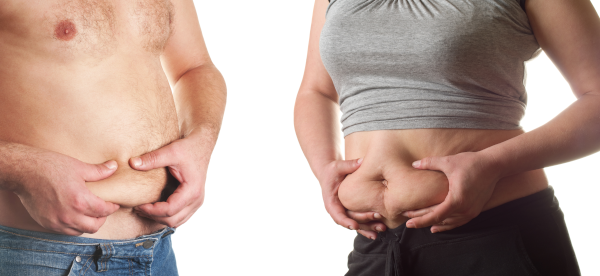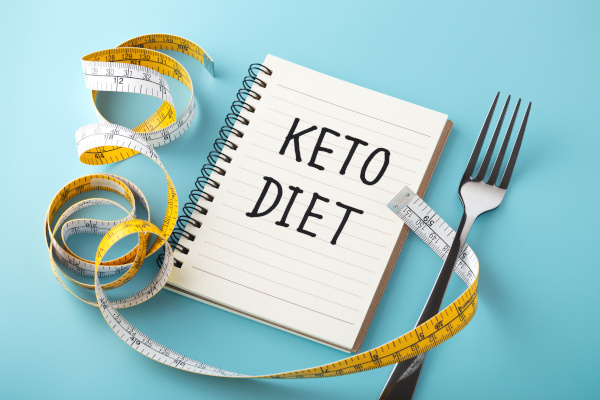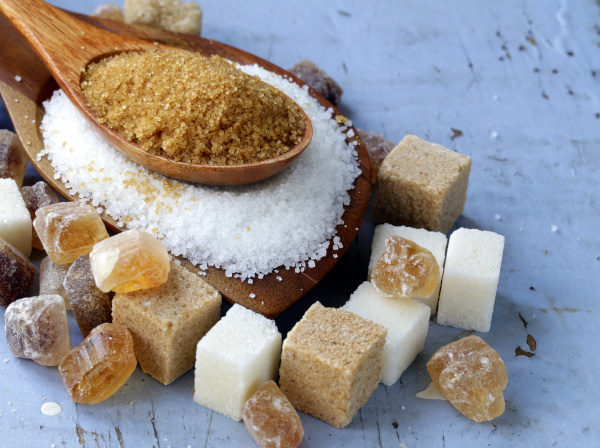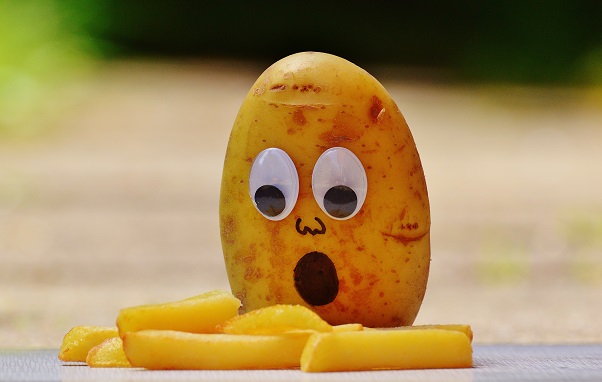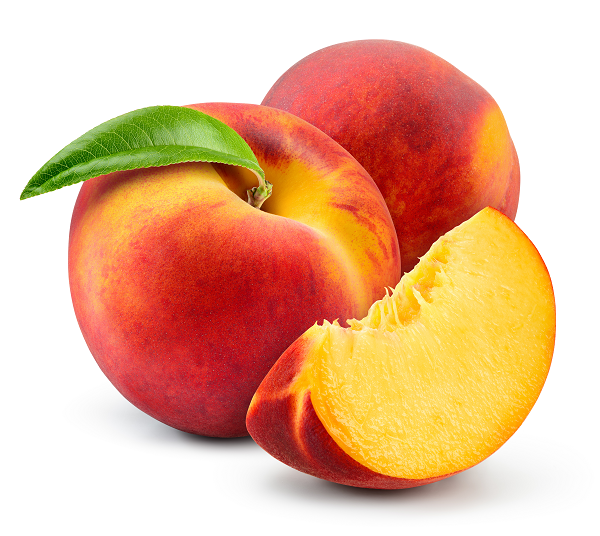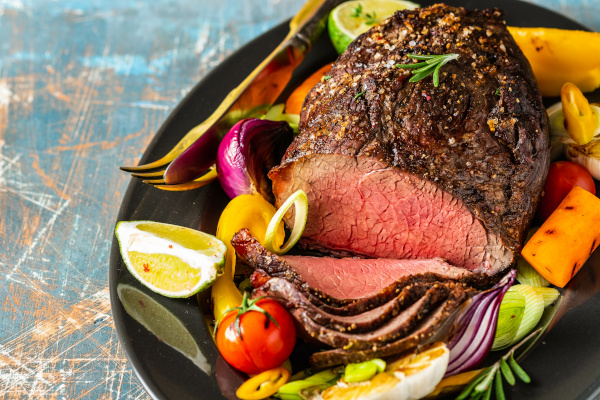What is Belly Fat?
To fully understand this question, we need to understand the biology behind belly fat and specifically how our bodies create this ever growing mountain of stored energy.
The Role of Adipose Tissue / Adipocytes in Energy Storage
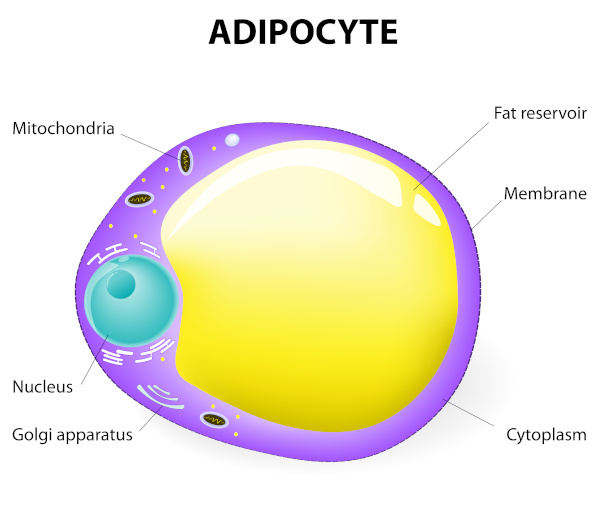
Belly fat (also known as stomach or abdominal fat) is the excess energy stored within the adipose tissue in your abdominal area. Whilst this excess energy can be stored throughout the body (hips, shoulders, chest, thighs, arms), the abdominal area is typically the first part of the body to store this excess energy.
In this discussion we are solely focusing on belly fat – the excess energy that is stored in our belly or abdominal area. Belly fat is generally the first type of fat we accumulate. In the early stages this “energy” can be lost relatively easily through an increase in exercise / reduction in glucose storage. Left to accumulate, it can become very serious health problem for you….
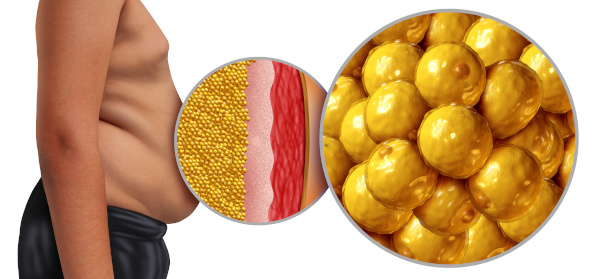
Understanding What is Belly Fat
This 3d conceptualised Illustration reveals the layering of belly fat within the abdomen. Understanding what causes it can lead to the rapid loss of belly fat and improve overall health.
The 2 Types of Belly Fat…
There are two distinct types of belly fat. Subcutaneous fat and Viceral fat. Each having their own issues in regards to your health and how they are removed. The differences in belly fat are largely dependant on lifestyle. Predominantly, poor diet and lack of effective exercise are the primary causes of both visceral and subcutaneous belly fat.
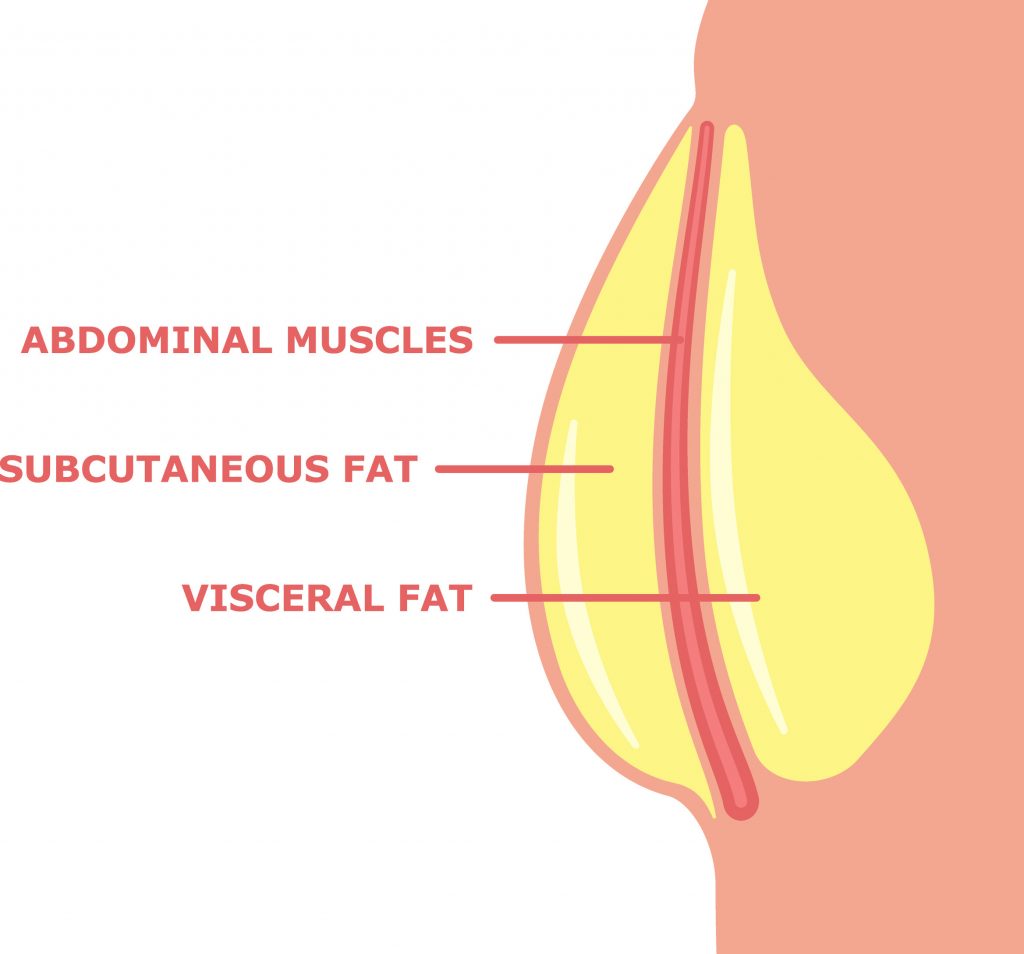
Two Types of Belly Fat : Subcutaneous and Visceral. Subcutaneous Fat is easier to lose with simple dietary improvements. Rapid loss of subcutaneous fat can be achieved in a clean eating weight loss plan that incorporates H.I.I.T (high intensity interval training).
The Visceral Fat (fat that surrounds the organs inside the body cavity) needs a longer, more intense diet and exercise regime.
Image : Adobe/zhenyakot
- Visceral Fat. Visceral fat is stored around the internal organs of the body and is potentially the most lethal of the two. Visceral fat can ‘strangle’ the organs and effectively cause multiple organ failure. Deposits around the liver, kidneys and heart can have catastrophic effects on other parts of the body, potentially resulting in death or severe disablement through oxygen starvation to the brain, muscles and other organs. Nutrient supply to the body’s organs are also restricted causing a wealth of health related issues – loss of brain function / disease, loss of muscle tissue leading to a further increase in fat deposits, poor skin condition, poor hair condition, loss of energy and vitality.
- Subcutaneous Belly Fat. The second type of belly fat sits just under the skin. In our early years, this was also known as ‘puppy fat’. This is the easiest type of belly fat to remove or burn off. This can be done easily through a healthy low carb diet (low carb diets reduce the volume of useless and dangerous carbohydrates entering the body). Wheat and wheat based products are probably the biggest causes of excess fat deposits and the obesity epidemic – a subject to be discussed in greater detail in another article.
What Causes Belly Fat?
As previously mentioned in “The Role of Adipose Tissue” belly fat is caused by the excess accumulation of glucose stored as fat in the adipose tissue. There are numerous causes of belly fat – not just through excess glucose storage including :
- Poor diet / diet rich in sugary foods and carbohydrates.
- Cellular Inflammation (the leading cause of weight gain and obesity)
- Excess Alcohol Consumption
- Chronic Stress Levels – Elevated levels of Cortisol result in the cycle of fat storage
- Inactive Lifestyle and…
- Lack of Effective Fat Burning Exercise
Now, you may already know or understand some of the reasons but let’s recap on the causes…
Which Foods Cause Belly Fat?
Foods high in carbohydrates (sugar, starches and wheat based carbohydrates) are the primary cause of dietary related belly fat. High dietary sugar content has been shown to reduce the ability of a person to reduce fat and can slow down the metabolic process. Products marked low in fat are usually high in sugar to increase the flavour. Sugar also causes and addiction due to it’s pleasing taste and is another reason why manufacturers use sugar in their products.
Belly Fat and Sugar Intake
Research has also revealed a direct connection between belly fat and high sugar content, particularly through the use of High Fructose sugar. While this research has its merits, it should also be noted that the research focused on sugars only and NOT the overall benefits. Fruits containing high sugar content can also be rich in essential vitamins and minerals which can promote weight loss and more importantly permanent weight loss.
Trans Fats.
Trans fats cause inflammation. Leading scientists and researchers have confirmed that inflammation is the biggest problem behind the worlds obesity epidemic. According to the American Heart Association, replacement of trans fats with monounsaturated and polyunsaturated fats can decrease the risk of heart diseases, insulin resistance, diabetes and obesity as a whole [2].
Carbohydrates
While performing essential functions in the human body (energy processes and electrolyte production), carbohydrates cause many health problems. Specifically in the type of carbohydrate and volume of consumption.
After each meal, carbohydrates are turned into glucose (a type of sugar). From here there are 3 pathways for the glucose:
- Consumed immediately as fuel for activity
- Stored in the liver as Glycogen
- Converted (with insulin) into fatty acids to be circulated around the body and stored as fat in adipose tissue (the fat cells).
While immediate consumption and normal levels of liver storage are not cause for concern (we can safely store sufficient glycogen in the liver for essential use and use in survival mode). It is the excess that is converted into fats and stored in the fat cells that causes the problems. Within 4-8 hrs, any excess glucose from overeating is stored in the fat cells.
To reduce the fat storage, it is necessary to reduce the excess consumption of carbohydrates.
Starch Based Carbohydrates
Potatoes
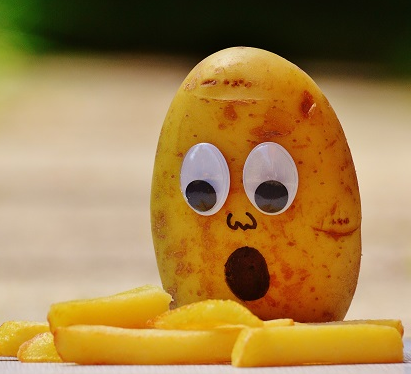
While there is nutritional evidence supporting the continued consumption of potatoes, there still remain issues with the full nutritional benefit. Potatoes are starchy and contain high amounts of carbohydrates. White potatoes have a higher glycaemic index than sweet potatoes causing a higher sugar spike on energy release within the body. However, white potatoes have a 3x higher satiety value compared to white bread.
Fried potatoes can have 3 x the caloric intake compared with boiled potatoes!
Starchy foods produce acrylamide (a potentially harmful chemical) when a person cooks them at high temperatures for a sustained time. The FDA Trusted Source says that acrylamide is a human health concern.
Wheat Based Carbohydrates – Bread, Cakes, Pies, Pastries and Pasta,
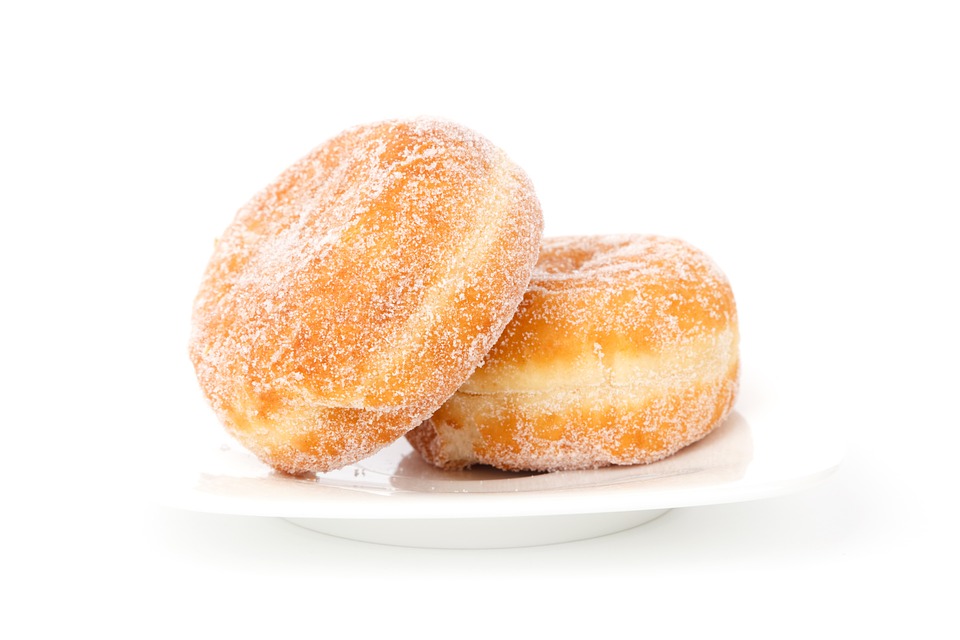
Wheat Based Carbohydrates such as doughnuts, cakes, bread, pastries, pasties and pasta are all high carb / low nutrient foods with a darker side than the press / medical professionals / food manufacturing and government health officials will tell you (they have a vested interest in the continued production and consumption of these foods).
Wheat also contains “anti-nutrients” which limit the absorption of the healthy nutrients (vitamins and minerals) we actually need in our diet.
Belly Fat and Alcohol Consumption.

Excess alcohol consumption can also cause an increase in visceral fat, especially around the liver. Excess alcohol consumption can cause cirrhosis of the liver on its own. Adding the excess fat into the equation increases the risks of cirrhosis of the liver and an increase in the risk of cancers, heart diseases, reproductive disorders and many more issues [3].
Lack of Exercise.

You are probably aware that we all need to exercise in order to stay fit and healthy. The problem arises in the frequent misconception / poor advice on what constitutes effective and healthy exercise. Now, exercises come into a variety of classes and purposes. Studies have repeatedly shown that high intensity interval training (hiit) is the ONLY effective fat burning exercise / fat loss workout. Cardiovascular exercise has been proven to be counterproductive through numerous studies[4] and can actually increase belly fat through our stress hormone Cortisol.
Belly Fat and Stress.
Now, we all get stressed from time to time. Employment / lack of employment and the stresses incurred through employment in these everchanging and challenging times. Family issues, housing issues and health related issues all contribute to our elevated stress levels. Chronic (or prolonged periods of stress) causes an increase in cortisol levels.
High cortisol levels cause the body to store excess fat in the abdomen for use later. However, ‘later’ rarely comes with the appropriate countermeasures, ie fat burning exercises, reduced stress levels and improved diet. Without these countermeasures put into effect the fat storage cycle continues with a constant increase in belly fat giving rise to elevated and dangerous health issues (cardiovascular disease, cardiac arrest, prostate cancer. [5]
Belly Fat and Obesity
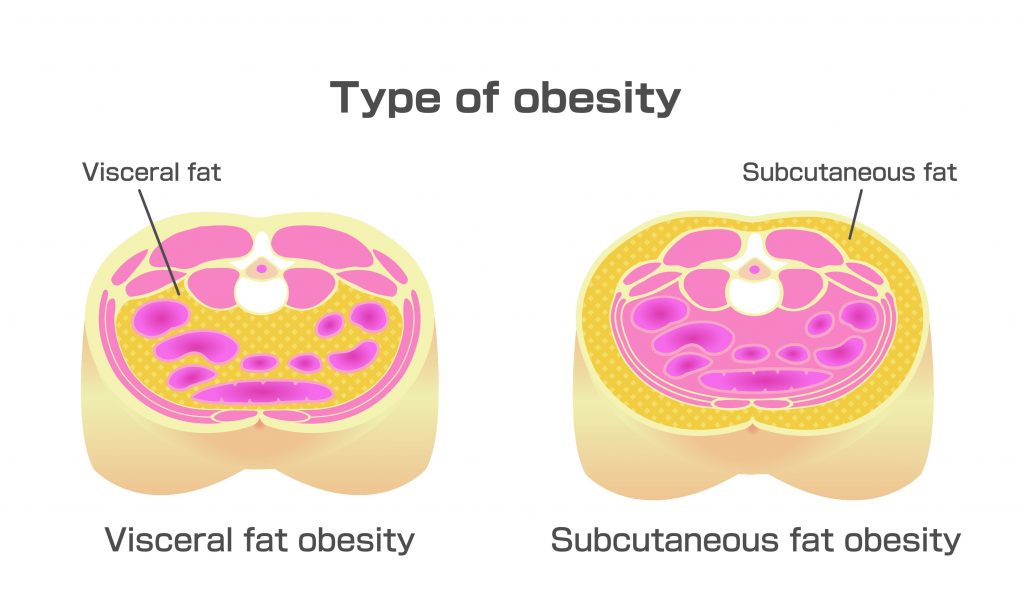
What is Belly Fat?
Belly fat is an accumulation of excess fats stored in the abdominal area for use at a later date. If not used up before the next influx of carbohydrates then your body will continue to store the excess glucose form the carbohydrates as belly fat. Stress induced belly fat can be reduced by reducing or eliminating stress within the body (of either mental and/or physical origins).
Now you understand what is belly fat and what causes belly fat, it’s time to learn……
How to Lose Belly Fat
Related Questions:.
How to Lose Belly Fat
Learning how to lose belly fat naturally you can avoid many belly fat related health issues, improve overall health and create a positive body image and potentially a complete body transformation into a lean, mean fat-burning machine that people will want to associate with.

